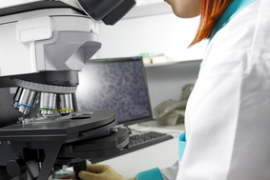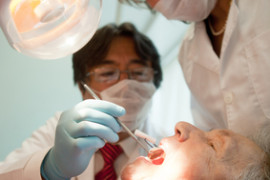Periodontal disease is quickly being recognized as a medical condition with systemic ramifications. While it is still essential to address periodontal disease from a traditional approach to maintain structural support for teeth, there are unique microbial and genetic components to this disease that often have systemic consequences.
A new study in Dentistry discussed the role of the interleukin-6 polymorphism in the progression of periodontal disease and its systemic effects. The study concluded that assessing a patient’s predisposition to hyper-respond to inflammation (as signified by the IL-6 polymorphism) is useful in determining customized treatment for oral and systemic care:
[T]his information gives the clinician the ability to share risk assessment for future inflammatory attachment loss, and in the case of the patient with co- morbid conditions such as diabetes and CVD useful information to help reduce the risk of exacerbation.
Salivary diagnostics enable healthcare professionals to determine the Il-6 status of their patients, giving them greater insight into the patient’s personal risk for and response to inflammation and allowing for earlier, more customized treatment.
Gaining knowledge of the nature of the patient’s bacterial load, and any genetic predisposition to an exaggerated inflammatory response (interleukin polymorphism) can be a valuable asset in determining treatment outcome, and prognosis for long-term success.
With salivary diagnostic technology and subsequent early intervention, it is possible for healthcare providers and their patients to avoid the damage on oral and systemic health that can arise from increased susceptibility to oral inflammation.



